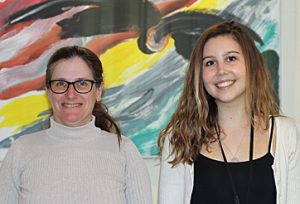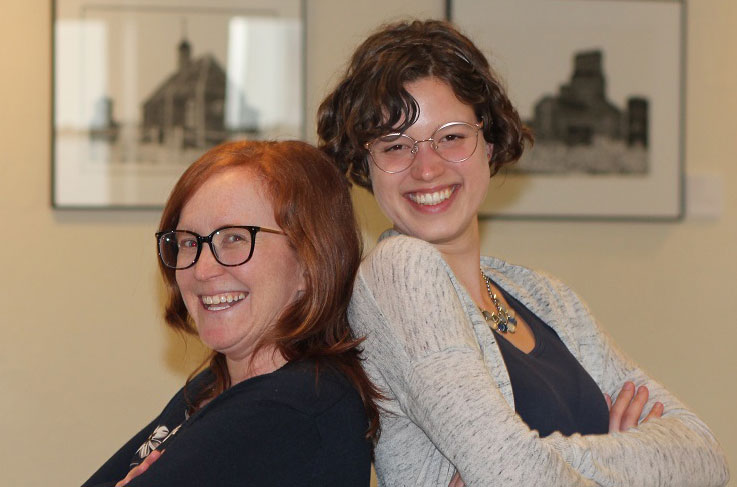For the second summer in a row, Indigenous students studying science at The University of Winnipeg are able to gain research experience and build a network with other Indigenous students, thanks to the Pathways to Graduate Studies (P2GS) program funded by the Natural Sciences and Engineering Research Council of Canada (NSERC).
Over four-weeks, June 1 – 26, 2020, students will participate in Zoom-based science classes in the morning and paid research in the afternoon, under the supervision of UWinnipeg faculty members. In the first week of the program, the students were invited to an open teaching event led by Elder Sharon Pelletier, giving students a chance to participate in a smudging through Zoom.
This year’s participating researchers are Dr. Craig Willis from the Department of Biology, Dr. Athar Ata and Dr. Tabitha Wood from the Department of Chemistry; Dr. Yannick Molgat-Seon, from the Department of Kinesiology and Applied Health; Dr. Shakhawat Hossain, from the Department of Mathematics and Statistics; and Dr. Blair Jamieson, Dr. Dwight Vincent, and Dr. Jeff Martin from the Department of Physics.
While working remotely, faculty are finding innovative ways to adapt and provide P2GS Scholars with engaging opportunities to participate in cutting-edge research.
For example, Dr. Ata will be using Zoom to show student how to perform experiments remotely, Dr. Molgat-Seon will provide students with pre-existing data to answer a novel research question, Dr. Jamieson has moved his research to studies of existing data and simulations of future detectors, and Dr. Wood is shifting to theoretical learning opportunities.
“As an experimental chemist, my research typically takes place in an on-campus chemistry laboratory, which is not possible right now given the COVID-19 pandemic response restrictions,” said Dr. Wood. “I’ve created an opportunity for meaningful research in a virtual setting by focusing on the computational, theoretical aspects of my research.”
Dr. Martin was originally planning to work with Ojibwe student Gabrielle Glowatsky to develop and characterize new magnetic sensors, but has adapted the project to provide her an opportunity to gain confidence applying engineering calculations to magnetic field generating coils instead.
“Ideally, Gabrielle will create the baseline design for some of the coils in our experiment,” he said. “But I will be happy if she learns the right-hand rule of electromagnetism. Building on that basic concept, you can design pretty much any magnet you want.”
According to the right hand rule, if you put your thumb along the direction of the electrical current in a wire, the fingers of your right hand will curl in the direction of the magnetic field that the wire generates. This knowledge will go along way toward giving an emerging scientist the skill and confidence to succeed in future research; a goal of the P2GS program.
P2GS helps students discover research aptitude
Despite the challenges of studying off campus, the program continues to grow. It has more than tripled, from three students in 2019, to 10 students in 2020.

Sidney Leggett worked with Dr. Melanie Martin as part of P2GS 2019, inspiring her younger brother to apply to P2GS 2020. @UWinnipeg
This year’s P2GS Scholars are Sara Baxter, Connor Boubard, Thomas Fleury, Gabrielle Glowatsky, Ashley King, Cassidy Lamerande, Silas Legget, Keith Mason, and Benjamin Tuesday.
Leggett is a 17-year old Métis student, and a recent graduate from the University of Winnipeg Collegiate. He is looking forward to beginning a science degree in fall 2020, and will spend the month of June working with Dr. Hossain to understand COVID-19 through statistical data analysis and modeling.
Using publicly available COVID-19 data, Dr. Hossain will supervise Leggett as he examines trends related to new cases and the predicted number of future death counts in Canada based on the most up-to-date COVID-19 data available.
“I am interested in how working under a researcher will help me narrow down what I want to do later on in life and advance my knowledge leading into university,” Leggett said.
He was inspired to apply for the program after seeing his sister, Sidney Leggett’s success last year. Sidney discovered her passion, and aptitude, for research in the 2019 P2GS program. The experience led to her acceptance in an astrophysics summer internship at Queen’s University.
“It was a huge boost to my resume getting to take part in P2GS, especially because it was my first research experience and my first chance to work with a physicist,” said Sidney. “I was scared I wouldn’t be able to do it, but it ended up working out extremely well.”
Dr. Melanie Martin worked with the Research and Innovation Office to get the program started in 2019. She says that last year’s student research exceeded expectations and she is looking forward to what this year will bring. As the 2020 season kicks off, she is thankful for the Faculty of Graduate Studies for their invaluable support, and Dr. Nora Casson who has stepped in to work alongside Martin as co-organizer.
Visit the P2GS website to learn more about the scholars and researchers taking part in this year’s program.

